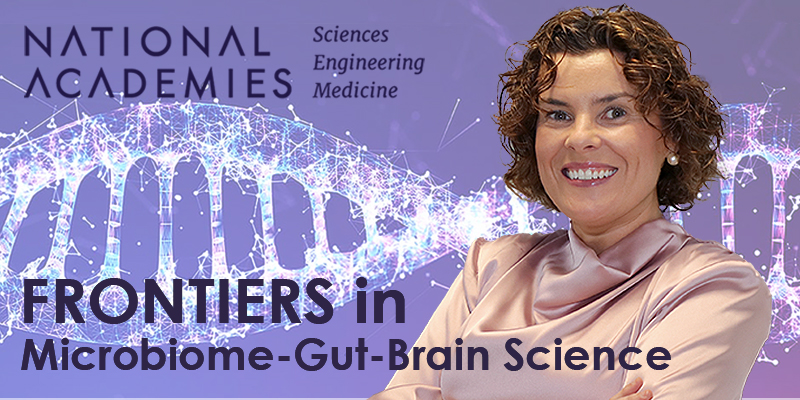In This Section
- Home
- Staff Profiles & Phone Book
- About the Department
- Welcome from Head of Department of Anatomy and Neuroscience
- A History of the Department
- A history of the Department; The early years to the 1980s
- A history of the Department; The move from the Windle Building to BSI and WGB
- UCC Professors of Anatomy and Heads of Department
- The development of the UCC HUB
- Current students, recent research graduates and awards
- Useful Links
- Study Anatomy
- Study Neuroscience
- Research
- Neural circuitry underlying Neuropsychiatric and Neurological Disorders 2026
- Neurogastroenterology 2026
- Developmental Neuroscience and Regeneration 2026
- Neurodegeneration 2026
- Neuroinflammation 2026
- Neuroprotection and Therapeutics 2026
- Neuroproteomics and Molecular Psychiatry 2026
- Anatomy Education Research 2026
- Research Facilities 2026
- Postgraduate Research Programmes 2026
- UCC Anatomical Donations
- Biosciences Imaging Centre
- BSc Medical and Health Sciences
- News & Events
- News Archive 2024
- News Archive 2023
- News Archive 2022
- News Archive 2021
- News Archive 2020
- News Archive 2019
- News Archive 2018
- News archive 2017
- News Archive 2016
- News Archive2015
- News Archive 2014
- News Archive 2013
- News Archive 2012
- News Archive 2011
- BRAIN AWARENESS WEEK 2023
- Department Events and Conferences
- Seminar series 2019_2020
- photo galleries
- Narrowing the void Conference 2023
- Photos of BSc Medical and Health Sciences Mentoring launch 2022
- International Women's Day 2023
- 2023 BRIGHT FUTURES - Celebrating our researchers
- 2023 UCC Futures - Future Ageing & Brain Sciences
- Recent Graduations July 2023
- Anatomy and Neuroscience Top 100 Anatomy Physiology 2023
- BRAIN AWARENESS WEEK 2023 FUN AND GAMES EVENT
- Medical and Health Sciences First year class 2023
- 2023 Brain Awareness week Scientific discussion photo gallery
- World Anatomy Day 2023
- BSc MHS MENTORING PROGRAMME 2023
- BSc Medical and Health Sciences Graduation 2023
- BSc Neuroscience Graduation Photo Gallery 2023
- Dr Kathy Quane Nov 2023
- THANKSGIVING PHOTOS 2012
- Photo Gallery: Society of Translational Medicine Careers Fair 2023
- Photo Gallery:2023 TRAIN AWARDS
- Photo Gallery:2024 Creative Week St Joseph's NS
- Photo Gallery: Department of Anatomy and Neuroscience Thanksgiving Service 2024
- Photo Gallery: Professor Aideen Sullivan farewell party
- Photo Gallery: Irish Pain Society Annual Scientific Meeting Cork 2023
- Photo Gallery: 2024 Medical and Health Sciences Graduation
- Photo Gallery: Medical and Health Sciences Meet and Greet 2024
- Photo Gallery: 2024 BSC NEUROSCIENCE Graduation
- Photo Gallery: 2025 INTERNATIONAL WOMEN'S DAY
- Photo Gallery: 2025 BSc Neuroscience class and staff
- Photo Gallery: 2025 BRAIN CONNECTIONS
- BSc Neuroscience Graduation Photo Gallery 2025
- World Anatomy Day 2025
- UCC Learning and Teaching Showcase 2025
- MSc Human Anatomy Graduation Photo Gallery 2025
- Narrowing the Void Conference 2023
- Department of Anatomy and Neuroscience Contact Us
Congratulations Dr Olivia O'Leary invited speaker, USA National Academies of Sciences: Frontiers in Microbiome-Gut-Brain Science meeting

Congratulations to Dr Olivia O’Leary, Senior Lecturer in the Department of Anatomy and Neuroscience and Funded Investigator in APC Microbiome Ireland, who was invited to the USA National Academies’ Board on Life Sciences spring meeting on May 23rd 2023, to present her research on gut microbiome regulation of brain function, and as invited research leader in a live webcast public discussion on Frontiers in Microbiome-Gut-Brain Science.
In her lecture at the National Academies meeting Dr O’Leary spoke about her research findings which demonstrate that the microbiome and neural signals from the gut can alter neurogenesis (the production of new brain cells) in the hippocampus area of the adult brain. Adult hippocampal neurogenesis plays important roles in the stress response, antidepressant action, and learning and memory. Thus, interventions that regulate adult hippocampal neurogenesis, such as manipulation of the gut microbiome, may have therapeutic potential for both stress-related psychiatric disorders and cognitive brain disorders.
At the National Academies’ Board on Life Sciences Discussions, Dr O’Leary was joined by other research leaders in the field including, Professor Rima Fathi Kaddurah-Daouk (Duke University), Professor Anumantha Kanthasamy (University of Georgia), Professor Eran Blacher (The Hebrew University of Jerusalem) and Professor Todd Coleman (Stanford University).
The discussions focused on the interplay between the brain and gut microbiome as it relates to trends in wearable technologies to measure and/or manipulate brain activity, and effects from environmental conditions on the microbiome-gut-brain axis. The discussion also explored existing successes and opportunities in this field, critical challenges and emerging areas that could enhance research and/or its applications, and the implications of this research on human health, ethics, defence and national security, and other relevant fields.
Dr O’Leary said that 'her invitation from the USA National Academies of Sciences to participate in this meeting recognises the calibre of her research programme in UCC', and that she was 'delighted for the opportunity to share her research and insights amongst global experts in the field, the public, and with the National Academies’ Board on Life Sciences.'
The National Academies of Sciences, Engineering, and Medicine are private, non-profit institutions in the USA that provide expert advice on some of the most pressing challenges facing the world. Their work helps shape sound policies, inform public opinion, and advance the pursuit of science, engineering, and medicine. The flagship peer-reviewed journal of the National Academy of Sciences is The Proceedings of the National Academy of Sciences (PNAS), one of the world's most cited and comprehensive multidisciplinary scientific journals.
Further Information on the National Academies of Sciences can be found here: https://www.nationalacademies.org/home
For more on this story contact:
Photograph and news item B. Riedewald
Department of Anatomy and Neuroscience
Anatamaíocht agus Néareolaíocht
Contact us
Room 2.33, 2nd Floor, Western Gateway Building, University College, Cork, Ireland
